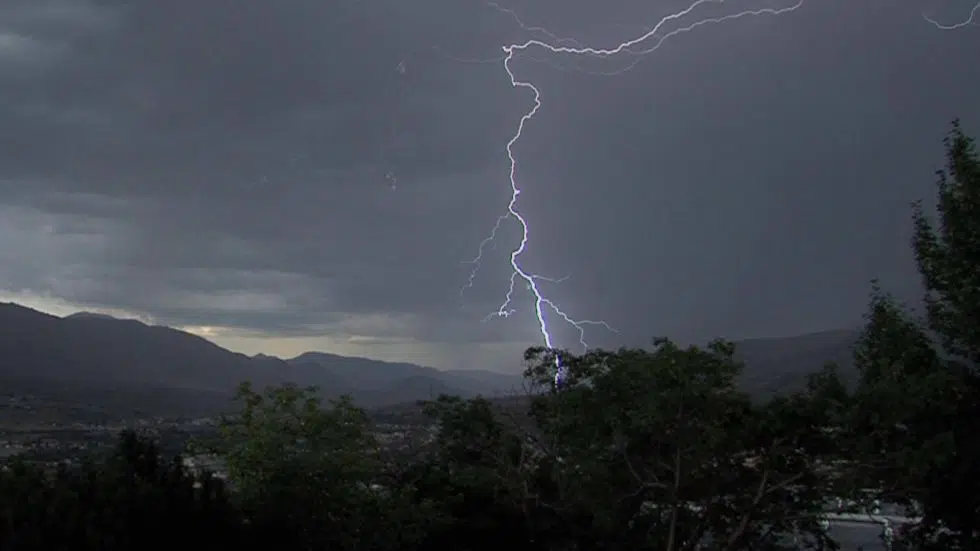
We are fleeting specks of awareness, full of worry
THAT SONG, the one that said, “Don’t worry, be happy,” was a joke, right?
Sometimes I worry that I worry too much.
Other times I worry that I don’t worry enough.
Or worry about the wrong things.

THAT SONG, the one that said, “Don’t worry, be happy,” was a joke, right?
Sometimes I worry that I worry too much.
Other times I worry that I don’t worry enough.
Or worry about the wrong things.
This, I gather, is not uncommon.

I tend to worry about things I mostly can’t control. Like nuclear war, the coming ice age, a meteor colliding with Earth and wiping us all out.
The day-to-day stuff doesn’t bother me. I don’t worry about being T-boned by some texter in an intersection on the way to town, or being compacted to the size of a tin can when a transport truck crosses the centre line on the Yellowhead.
I don’t worry about being late for meetings and appointments. Anyone who knows me understands that I’m 15 minutes late for everything.
Instead, I worry about climate change, the extinction of species, internet security and getting the next cold that’s going around.
Some people say worrying makes you safer. In those crucial hours around 3 or 4 a.m. when we’re not supposed to be awake yet, but are, we can be very productive. We can solve a lot of problems before the alarm goes off, but of course when it does we generally forget what the problem was, let alone how we were going to fix it.
I’ve been reading a book called “What Should We Be Worried About?” edited by John Brockman. It’s a few years old but was a best seller when it was published. The subtext of the title is, “Real scenarios that keep scientists up at night.”
It talks about all kinds of things I never even thought of worrying about, but now worry that maybe I should.
Things like consciousness. One chapter in the book says we have no idea which things are conscious and which are not. The chapter’s author, Timo Hannay, explains that without consciousness, there’s no subjective experience such as kindness, love or joy.
We take for granted that some animals are more conscious than others, and that animals are more conscious than plants, but we don’t honestly know.
Hannay concludes, “It is possible that we are rare, fleeting specks of awareness in an unfeeling cosmic desert, the only witnesses to its wonder. It is also possible that we are living in a universal sea of sentience, surrounded by ecstasy and strife that is open to our influence.
“Sensible beings that we are, both possibilities should worry us.”
Let me get back to you on that.
Another chapter says our worries about privacy are stifling advances in technology. We’re so worried that, somehow, every little thing we do is being seen by somebody somewhere that we resist things like self-driving cars that would improve and maybe even save lives.
Another talks about the rise of superstition. “Superstition can help bring down whole civilizations.”
The book gives religious superstition as an example, at the root of fundamentalism.
Others worry about aliens and think we should keep Earth a secret from the rest of the universe.
Author Dylan Evans worries not that there isn’t enough democracy, but that it isn’t getting the job done. He contends that democracy causes most people to be dissatisfied.
He gives us the example of Barack Obama’s election with 51 per cent of the vote. He says not only were the other 49 per cent unhappy, but a good part of the 51 per cent were also disappointed because nobody gets the chance to vote for “the ideal manifesto.”
This was written before Donald Trump. I don’t know about you, but though I’ve been worried that democracy isn’t at its best right now, I never thought of it as needing replacement.
Other parts of the book express worry about the rise in genomic instability, exaggerated expectations, the loss of manual skills, dumb decisions and whether the human species has the will to survive. And, one of the biggest ones — the things we don’t know.
There’s no clear answer on whether, over all, worrying is a good thing or a bad thing. Only that it has costs and benefits.
Dan Sperber, a social and cognitive scientist, takes a practical, results-oriented approach. “Worrying for a few minutes about what to serve for dinner in order to please one’s guests may be a sound investment of resources,” he believes.
“Worrying about what will happen to your soul after death is a total waste.”


